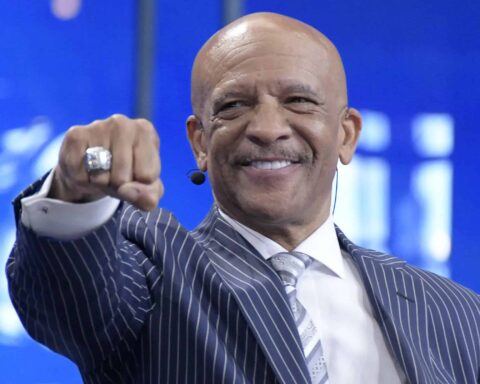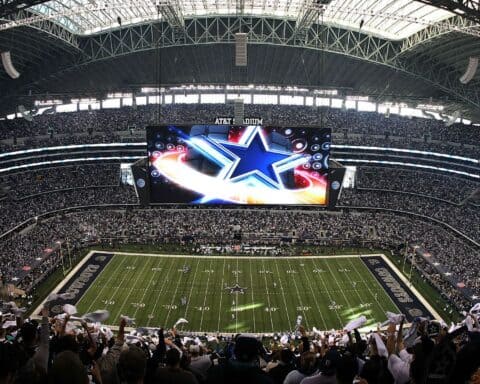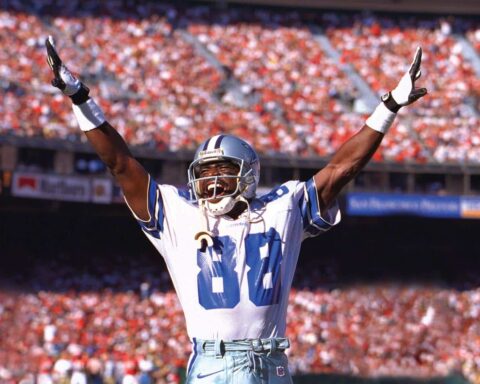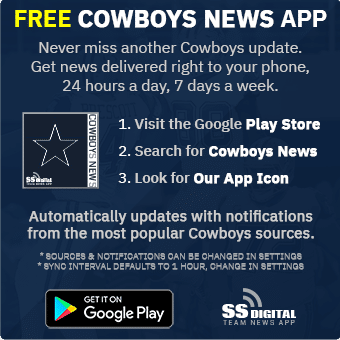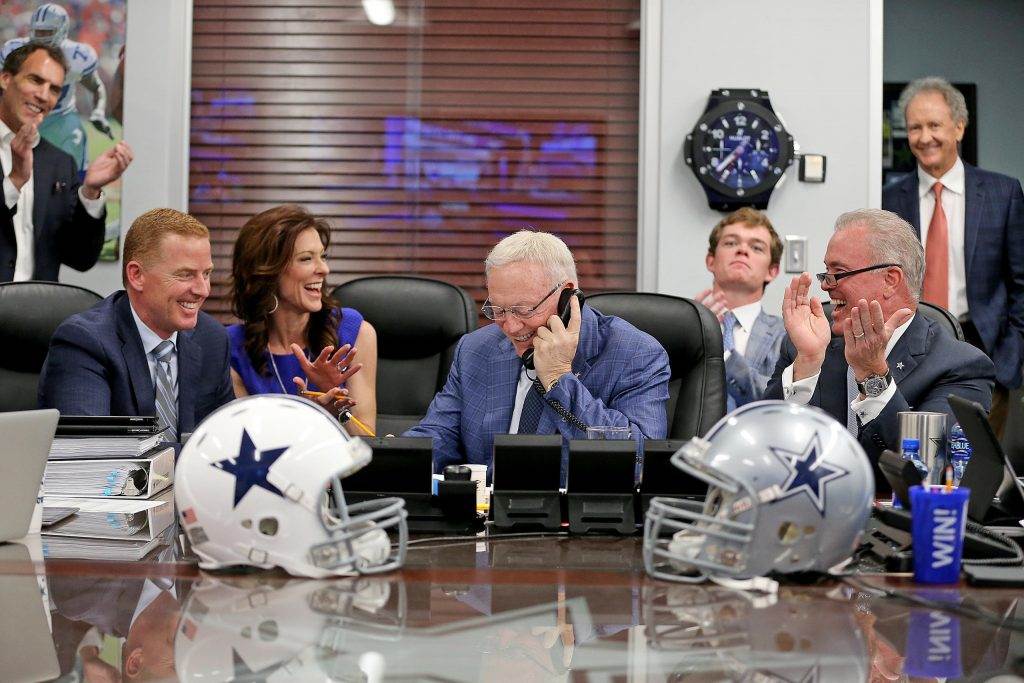Starting today – and for the next five days – we’ll be taking a look back at six of the past NFL Drafts by the Dallas Cowboys.
Starting with the 1964 draft – with the 1974, 1984, 1994, 2004, and 2014 drafts to follow – we’ll look at how the Cowboys drafted that year.
Turning back the dial 60 years we start with a draft that might be difficult for the Cowboys to ever top. In 1964 the Cowboys drafted three eventual Hall of Famers.
And their first round pick that year wasn’t one of those three either.
Best Draft Of The Decade
After missing the 1960 Draft because the franchise began after that year’s draft, the Cowboys were lucky to land one solid player in each year from 1961-63.
In 1961 they hit a grand slam with Bob Lilly in the 13th pick of the first round. He eventually landed in the Hall of Fame.
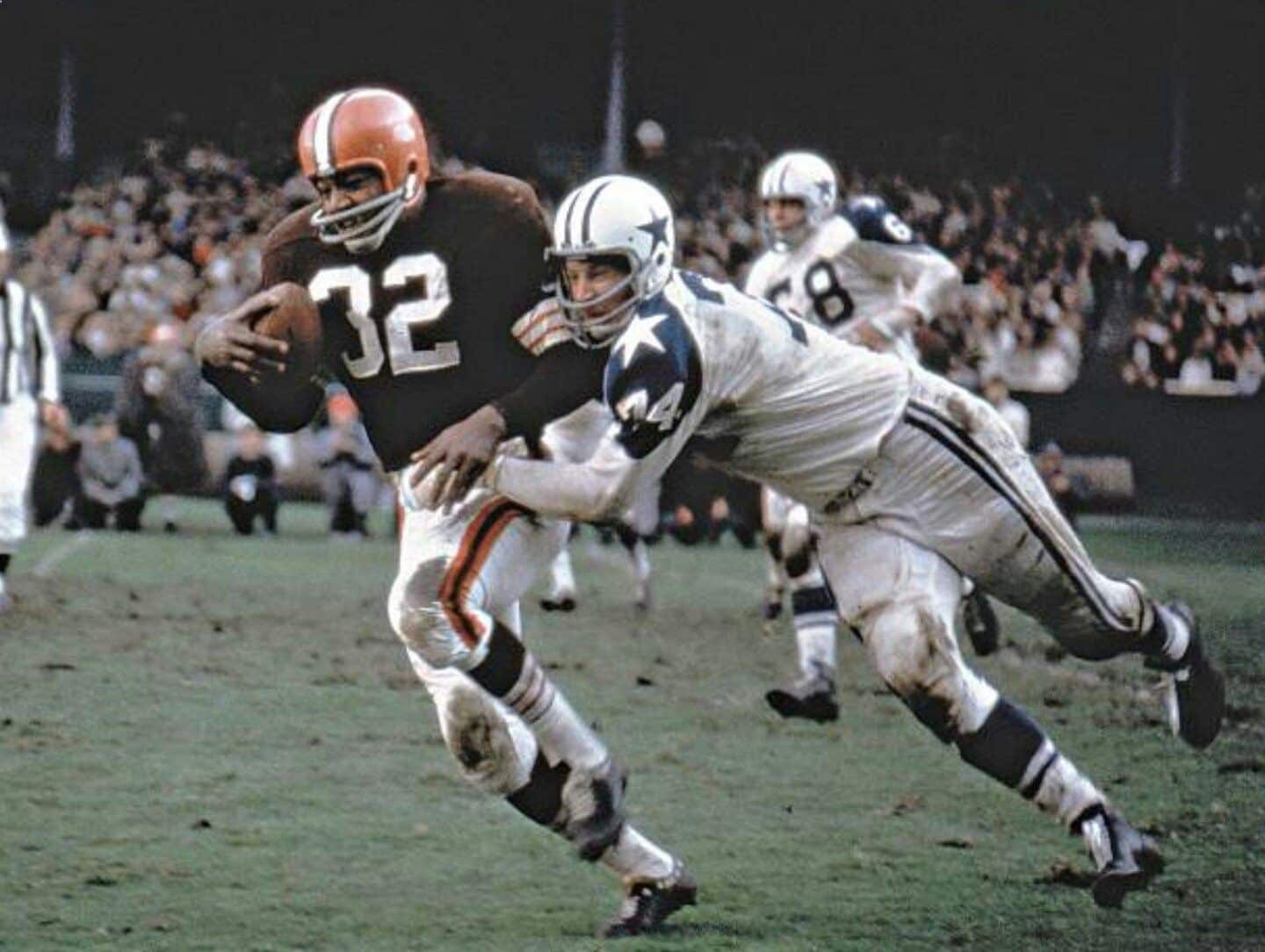
In 1962 it was a sixth round pick, defensive end George Andrie, that was the best pick for Dallas that draft.
Linebacker Lee Roy Jordan – a first rounder — was the lone gem for the Cowboys in the 1963 Draft.
But they hit the jackpot in 1964. Despite picking defensive tackle Scott Appleton with the fourth pick in the first round.
Appleton never played a down of football in the NFL – he played for the Oilers and the Chargers in the AFL and was out of the game by 1969.
The Cowboys more than made up for not landing Appleton with three of their next nine picks though.
Renfro Landed In The Second Round
In the second round, with the 17th overall pick, Dallas selected a defensive back out of Oregon, Mel Renfro.
For the next six seasons, Renfro would play free safety before moving to cornerback for the last eight years of his career.
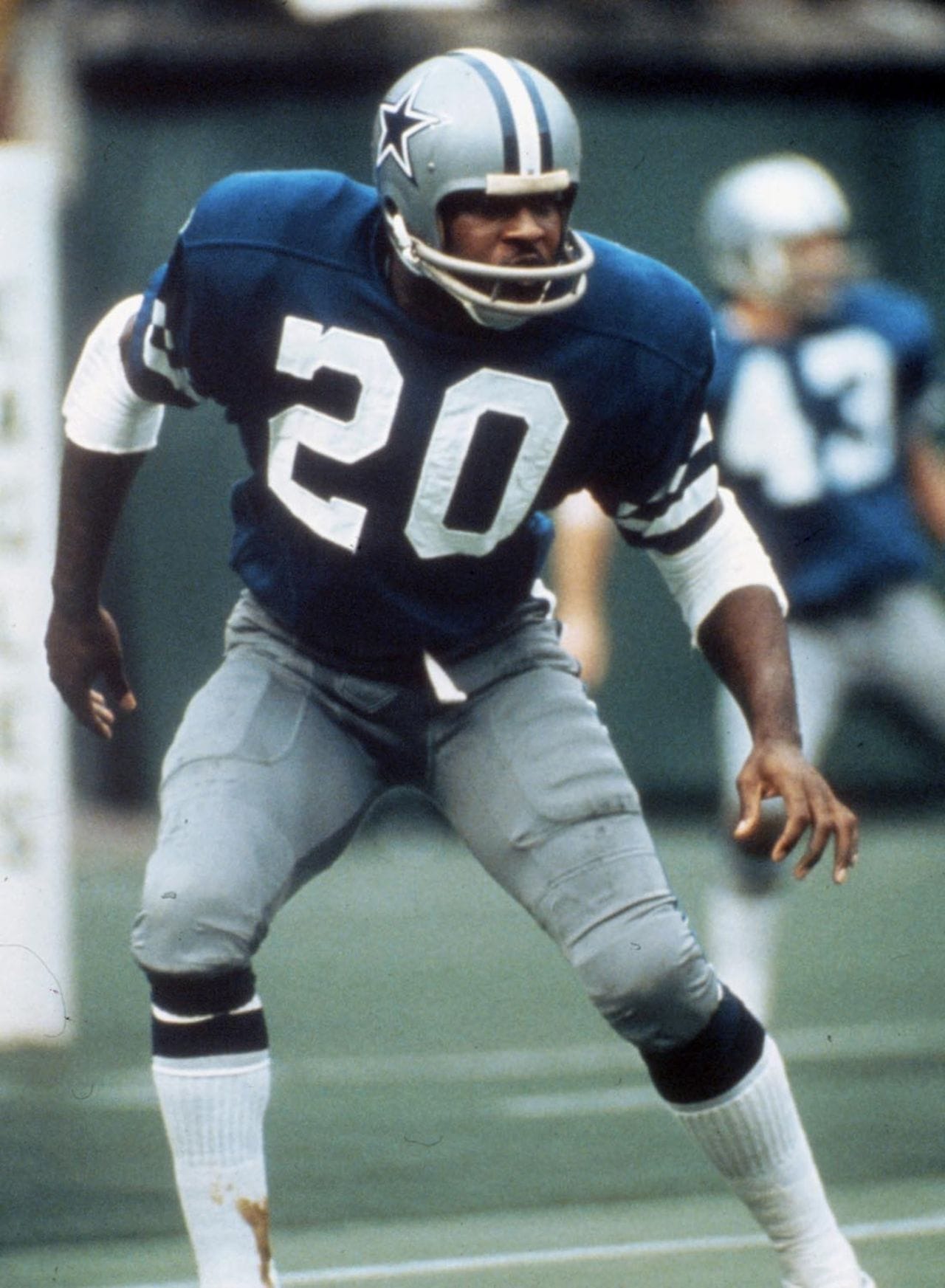
For the first 10 years of his 14 seasons in the NFL – all in Dallas – he was named to the Pro Bowl.
He finished with 52 career interceptions, returning three for a touchdown, including a career-high 10 picks in 1969.
In 1965 he returned an interception 90 yards for a score in a 20-13 loss to St. Louis. He had at least one interception in every season he played.
In 1996 he was finally inducted into the Hall of Fame – a full 19 years after he retired as a two-time Super Bowl champion.
Renfro was inducted into the Cowboys’ Ring of Honor in October of 1981. Making the Hall’s delay all that more unforgivable.
Cowboys Catch A Bullet In The Seventh
Dallas would have a fourth round pick and three sixth-round picks after Renfro. None of the four players were on the team after 1965.
In the seventh round the Cowboys looked to Florida A&M and drafted receiver Bob Hayes. His nickname, because of his speed, was Bullet Bob.
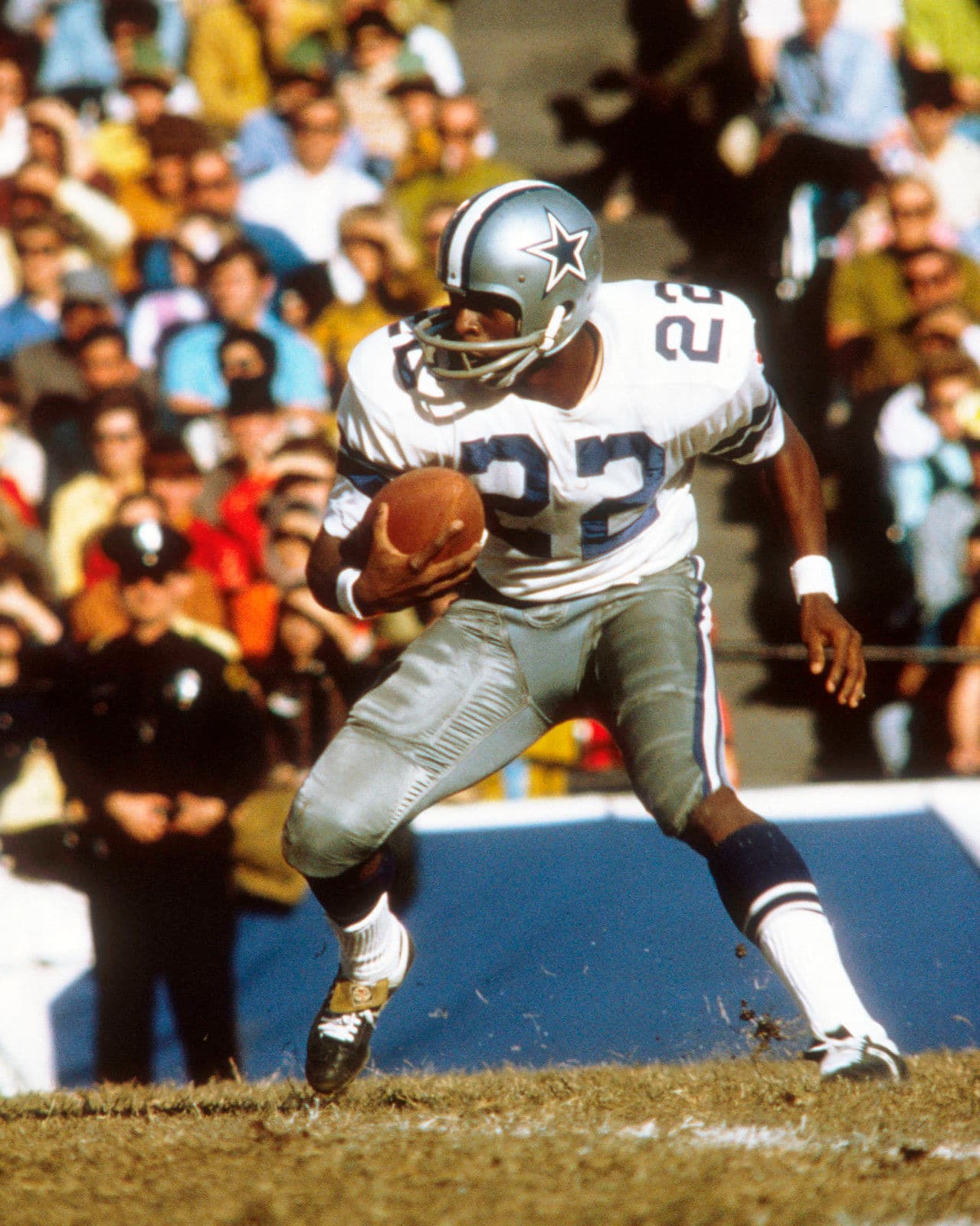
Hayes was still in college, and preparing for the Summer Olympics in Tokyo, when Dallas used a future draft pick on him.
The bet paid off. Hayes won two gold medals in Japan in 1964 and joined the Cowboys in 1965.
A three-time Pro Bowler, Hayes collected a Super Bowl ring in Super Bowl VI. After a 10-year stint in Dallas, Hayes played in four games with the 49ers in 1975 before retiring.
In an NFL where the passing game was not yet king, Hayes had 365 catches for 7,295 yards, and 71 TDs for the Cowboys. He would start in 104 of the 128 games he played in Dallas.
Like Renfro he would have a long wait before the Hall came calling.
It would also take much longer for the Cowboys to get him into the Ring of Honor.
In September of 2001, Hayes’ name finally adorned the Ring at Texas Stadium. The Hall of Fame would not add him until 2009.
Hayes died in September of 2002.
There was one other futures gamble Dallas made in the 1964 Draft. This one paid off even bigger, although it took a little longer for the payout.
A Perfect 10
In the 10th round of the 1964 Draft the Cowboys decided to grab the Heisman Award winner from the just concluded 1963 college football season.
The reason why a Heisman Award winning quarterback was still on the board that late was that he played for the Naval Academy.
Which meant a five-year hitch in the Navy after graduation. And Roger Staubach wasn’t graduating until 1964.
So the earliest Staubach could see an NFL game as a player would be in 1969 – at the age of 27.
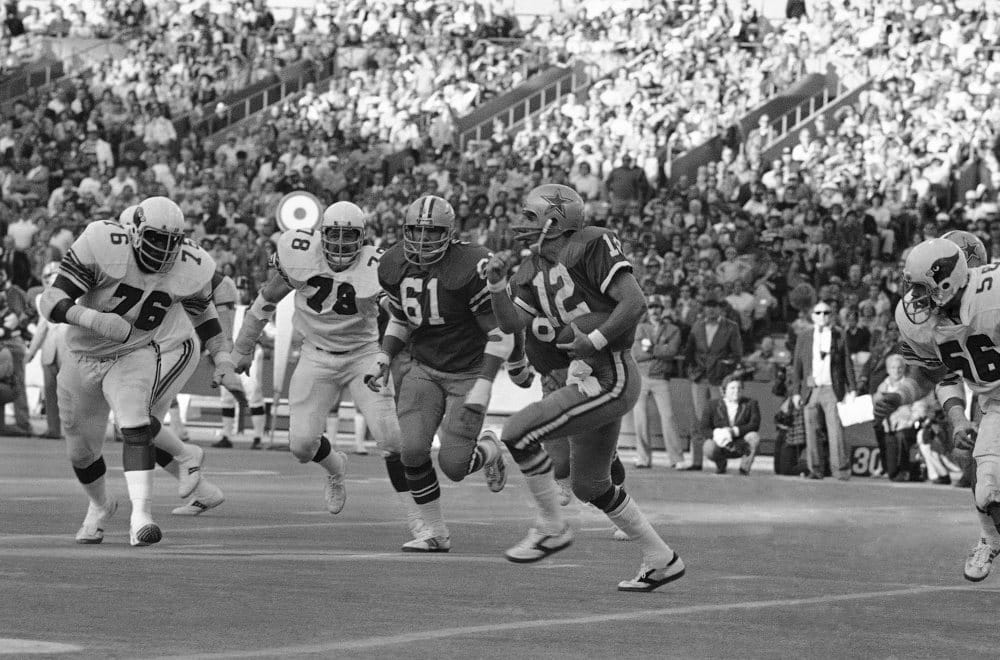
Still, the Cowboys rolled the dice, as did the Chiefs over in the AFL in the 16th round of their draft. And by the time 1969 rolled around, Staubach had chosen the Cowboys.
He would not secure the starting job until 1971.
By the time his 11-year career ended he had led 13 comebacks – earning the name Captain Comeback.
He also won two of the four Super Bowls he led Dallas to. He was named to six Pro Bowl teams as well.
In 131 games he started 114 of them and had a record of 85-29 in the regular season. He passed for 22,700 yards and 153 TDs with 109 interceptions.
In 1983 he was added to the Cowboys Ring of Honor. Two years later he was inducted into the Hall of Fame.
The Best Class Ever?
A draft that produced three Hall of Famers is hard to top.
The Cowboys certainly haven’t come close to repeating that feat yet. As the 2024 Draft approaches next month, the Cowboys need to reach back and repeat the 1964 performance.
That class of six decades ago arrived just as the Cowboys finally shook off their “expansion franchise” shackles. They would start competing for – and winning – championships.
Dallas ended a 12-year championship drought when they won Super Bowl VI at the end of the 1971 season.
They did so because they had players like Renfro, Hayes, and Staubach on the roster via the draft.
If they are to end a nearly three-decade drought now, a 1964-type draft would be a good first step.


